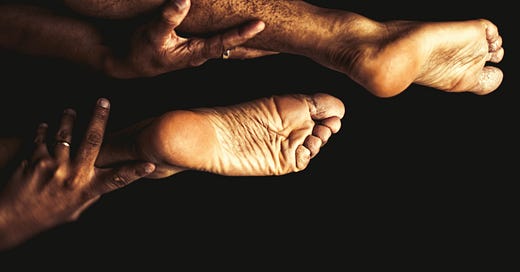Welcome Back Rheumatology Fans,
If you haven’t read PART 1 yet, I suggest you do that before making your way through this article.
Part 2 Contents
Overview Of Enthesitis Treatment Strategies (Free)
Rehabilitation Approach
Discussing Enthesitis With The Person
Case Study Examples
Overview Of Enthesitis Treatment Strategies
As we discussed in Part 1 of this article couplet, Enthesitis is an auto-inflammatory issue and as such the mainstay of treatment is medical. There are escalating treatment strategies which are used to manage the whole disease process of which enthesitis is going to be but one part. For example Psoriatic Arthritis will have systemic components of skin (Psoriasis), joint (synovitis), spine (spondylitis, sacroiliitis) and peripheral tendon (enthesitis). I have listed out the strategies below, they often overlap and are usually used in combination.
Local anti-inflammatories (topical) or NSAIDs e.g. ibuprofen
Cox-2 Inhibitors e.g. Etoricoxib
Disease Modifying Anti-Rheumatic Drugs (DMARDS) e.g. Methotrexate
Biologics e.g. Adalimumab
Steroids e.g. Prednisolone (for recalcitrant disease or flares)
These strategies are looked after by the Rheumatologist and even if MSK clinicians have prescribing rights I would strongly advocate any changes or additions are made in communication with the Rheumatology Team.
Non-Medical strategies are problematic as we don’t have research to support them. We can break down their alignment with Medical management.
No Medical Management In Place - Trial symptomatic relief, tentative loading, health advice
Titrating Medical Management In Place - Symptomatic relief, loading to tolerance (low threshold to reduction), health advice
Established Medical Management In Place - Symptomatic relief, loading to tolerance (normal threshold to reduction), health advice
Please remember that Enthesitis is NOT the same as tendinopathy and as such it may not react to treatment strategies in the way that you expect. It is also heavily influenced by other health factors and pro-inflammatory factors (sleep, stress, infection).
Keep reading with a 7-day free trial
Subscribe to The Rheumatology Physio to keep reading this post and get 7 days of free access to the full post archives.





